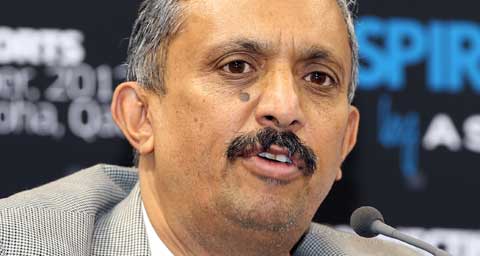
Meng Wanzhou, chief financial officer of China’s telecom giant Huawei, has argued that she should be released on bail while awaiting an extradition hearing, citing fears for her health while incarcerated in Canada along with other factors, according to court documents.
The release of the documents on Sunday came as China’s foreign ministry summoned the US ambassador to protest Meng’s detention at the request of he United States and demanded Washington cancel an order for her arrest.
The 46-year-old, who is is in custody awaiting a Canadian court’s decision on bail on Monday following her arrest on December 1 in Vancouver, faces US accusations that she misled multinational banks about Huawei’s control of a company operating in Iran.
This deception put the banks at risk of violating Washington’s sanctions and incurring severe penalties, the court documents said.
The arrest has infuriated Beijing, which demanded Meng’s immediate release, and stoked tensions during the trade war trucebetween the US and China, the world’s two largest economies.
The arrest has roiled global markets as investors worried it could torpedo attempts to thaw trade tensions between Washington and Beijing.
In a sworn affidavit, Meng, the daughter of Huawei’s founder, said she is innocent of the allegations and will contest them at trial in the US if she is surrendered there.
Meng said she was taken to a hospital for treatment for hypertension after being detained. She cited hypertension as a factor in a bail application seeking her release pending an extradition hearing. She also said she has longstanding ties to Vancouver dating back at least 15 years, as well as significant property holdings in the city.
Her family also sought leave to remain in Vancouver if she was granted bail, according to the court documents, with her husband saying he plans to bring the couple’s daughter to Vancouver to attend school during the proceedings.
China hits back
Earlier on Sunday, China’s Vice Foreign Minister Le Yucheng summoned US ambassador Terry Branstad one day after he called in Canadian envoy John McCallum to voice China’s displeasure.
“Le Yucheng pointed out that the US side has seriously violated the legitimate rights and interests of Chinese citizens, and the nature of the violation is extremely bad,” the foreign ministry said in a statement.
“The Chinese side firmly opposes this and strongly urges the United States to attach great importance to China’s solemn and just position,” it said.
Beijing also urged Washington to “take immediate measures to correct wrong practices, and revoke the arrest warrant against the Chinese citizen”, while warning that it would make an unspecified “further response” in light of the US actions.
Al Jazeera’s Adrian Brown, reporting from Beijing, said the summoning of the US and Canava ambassadors was to expected, but stressed the “muted” overall official response by the Chinese leadership.
“You would anticipate in these circumstances the ambassadors of the US and Canada to be summoned to the foreign ministry … but we haven’t really heard anything from China’s leaders.
“On that front, the response so far has been quite muted. I think China is leaving it to its sort of ‘attack dogs’ in state-controlled media to really do all the talking,” said Brown, citing the Global Times newspaper which has called Meng’s arrest an “act of war”.
“The language is fast going to turn from purple to crimson in the days, weeks and months ahead if she remains incarcerated,” Brown added.
He noted, however, that there was a shift in the online chatter about the case in recent days.
“Last week, a lot of the social media posts that we were seeing were very much in favour of Meng, criticising the decision to hold her,” said Brown.
“But now we see it’s starting to swing the other way; a lot of people are surprised to learn for instance that she apparently has seven passports – four from mainland China and three from Hong Kong. There are also questions over the enormity of her wealth and fact that she has two luxury properties in Vancouver.”
Washington has been looking since at least 2016 into whether Huawei shipped US-origin products to Iran and other countries in violation of U.S. export and sanctions laws, the Reuters news agency reported in April.
In the Canadian court documents released on Sunday, Huawei said its Iran operations were “in strict compliance with applicable laws, regulations and sanctions” of the United Nations, US and European Union.
In a company presentation from 2013 that was released with the Canadian court documents, Huawei said it communicated with US government agencies on a “day-to-day” basis to obtain what it called “professional guidance” on trade compliance.
Companies are barred from using the US financial system to funnel goods and services to sanctioned entities.
US Senator Marco Rubio said on Sunday he would “100 percent absolutely” introduce a measure in the new Congress that would ban Chinese telecom companies from doing business in the United States.












